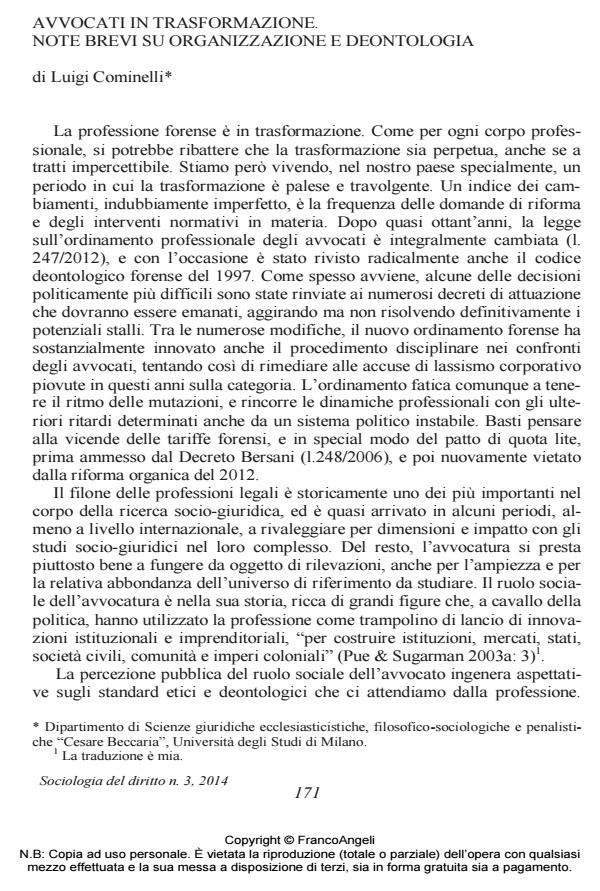Attorneys in transformation. Some brief notes about organisation and deontology
Journal title SOCIOLOGIA DEL DIRITTO
Author/s Luigi Cominelli
Publishing Year 2015 Issue 2014/3
Language Italian Pages 9 P. 171-179 File size 63 KB
DOI 10.3280/SD2014-003009
DOI is like a bar code for intellectual property: to have more infomation
click here
Below, you can see the article first page
If you want to buy this article in PDF format, you can do it, following the instructions to buy download credits

FrancoAngeli is member of Publishers International Linking Association, Inc (PILA), a not-for-profit association which run the CrossRef service enabling links to and from online scholarly content.
The legal profession is undergoing transformation and we are currently experiencing a period when this transformation is overwhelming, especially in Italy. The public’s perception of the attorney’s social role generates expectations about the ethical and deontological standards we require from the profession. Put to the test of everyday reality, betrayed expectations generate a generalised hostility towards attorneys as a class, although this does not translate systematically into bad attorney- client relationships. It is also true that the legal profession has been put under pressure, like the administration of justice as a whole, by international benchmarks that measure the efficiency of the system of justice. Two aspects loom large in empirical analyses of attorneys: the profession’s organisational dimension and its deontological self-regulation. For a clientele of repeat players, legal services have been transformed into a commodity. Clients demand speed and competitive pricing and do not hesitate to encourage competition between attorneys, as a way of achieving better offers by beating their fees down. The profession is now overloaded with social expectations, a slave to formalism and unbalanced towards remedies. The client-individual is paradoxically a purely metaphysical concept, because the lawyer’s training does not contemplate any mention of the ability to relate, to negotiate or to communicate.
Keywords: Attorneys, Forensic deontology, Forensic order
Luigi Cominelli, Avvocati in trasformazione. note brevi su organizzazione e deontologia in "SOCIOLOGIA DEL DIRITTO " 3/2014, pp 171-179, DOI: 10.3280/SD2014-003009